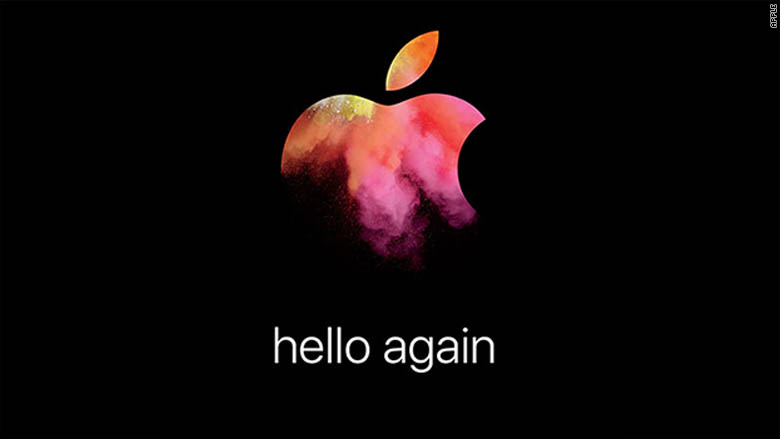Lesson from Apple's Beijing Loss
Quote from Ndubuisi Ekekwe on December 25, 2017, 6:09 PM
I had noted in the past that Apple is beatable in businesses where everyone matters: poor, rich and in-between. Walmart Pay which is used in only Walmart Stores is giving Apple Pay a tough challenge. Walmart had declined to work with Apple Pay, passing over the exclusivity, for a product that welcomes anyone with a smartphone to the Walmart fold. That is a strategy that makes sense. It is working for Walmart.
A similar loss seems to be playing for Apple in Beijing, China where subway upgrade has cut-out Apple and its technologies. Any subway rider in Beijing can now swipe NFC (near field communications) Android phone at the gantries. With the exclusivity Apple has for its technology, Beijing could not include Apple: Apple restricts contactless payment to only Apple Pay. No one expects Beijing to be sending free money to Apple. Other districts plan to deploy the same technology. So, just like that, Apple may lose all of China subway markets.
The path to services requires volume, and Apple’s closed iOS will be a challenge when the company stalls in its evolutionary finite hardware improvements. I do think that Apple must learn from the Walmart Pay and Beijing experiences: in a consumer market, especially on services, the best model is to welcome everyone. Simply, the exclusivity of iOS may not be strength, going forward.

I had noted in the past that Apple is beatable in businesses where everyone matters: poor, rich and in-between. Walmart Pay which is used in only Walmart Stores is giving Apple Pay a tough challenge. Walmart had declined to work with Apple Pay, passing over the exclusivity, for a product that welcomes anyone with a smartphone to the Walmart fold. That is a strategy that makes sense. It is working for Walmart.
A similar loss seems to be playing for Apple in Beijing, China where subway upgrade has cut-out Apple and its technologies. Any subway rider in Beijing can now swipe NFC (near field communications) Android phone at the gantries. With the exclusivity Apple has for its technology, Beijing could not include Apple: Apple restricts contactless payment to only Apple Pay. No one expects Beijing to be sending free money to Apple. Other districts plan to deploy the same technology. So, just like that, Apple may lose all of China subway markets.
The path to services requires volume, and Apple’s closed iOS will be a challenge when the company stalls in its evolutionary finite hardware improvements. I do think that Apple must learn from the Walmart Pay and Beijing experiences: in a consumer market, especially on services, the best model is to welcome everyone. Simply, the exclusivity of iOS may not be strength, going forward.
Register for Tekedia Mini-MBA edition 16 (Feb 10 – May 3, 2025) today for early bird discounts.
Tekedia AI in Business Masterclass opens registrations.
Join Tekedia Capital Syndicate and co-invest in great global startups.
Register to become a better CEO or Director with Tekedia CEO & Director Program.
Quote from Francis Oguaju on December 26, 2017, 1:10 AMIt may appear more like a puzzle for Apple. It never envisioned its business to be 'everyone is invited' or 'all comers' thing, but some of the areas Apple has business interests to offer services might not support its way of thinking. Revolutionary hardware development is finite, meaning that Apple is likely to rely more on its services arm for further growth and profitability. Again, opening up iOS could be risky, aside from vulnerability issue; the iOS is largely why Apple is Apple, with its exclusivity tag. Maybe it could create a 'semi open system' with android or similar operating systems, to be able to share in those services areas where exclusivity limits its services offerings to major sectors or partners. I still don't want iOS to be like android, maybe Apple has to come up with its greatest invention since iPhone, to solve this one, without losing its essence. There will always be exclusivity and all comers models in businesses, that's how the world is, and will continue to be. It's a question of looking critically and choosing correctly, then positioning properly for whatever happens.
It may appear more like a puzzle for Apple. It never envisioned its business to be 'everyone is invited' or 'all comers' thing, but some of the areas Apple has business interests to offer services might not support its way of thinking. Revolutionary hardware development is finite, meaning that Apple is likely to rely more on its services arm for further growth and profitability. Again, opening up iOS could be risky, aside from vulnerability issue; the iOS is largely why Apple is Apple, with its exclusivity tag. Maybe it could create a 'semi open system' with android or similar operating systems, to be able to share in those services areas where exclusivity limits its services offerings to major sectors or partners. I still don't want iOS to be like android, maybe Apple has to come up with its greatest invention since iPhone, to solve this one, without losing its essence. There will always be exclusivity and all comers models in businesses, that's how the world is, and will continue to be. It's a question of looking critically and choosing correctly, then positioning properly for whatever happens.

